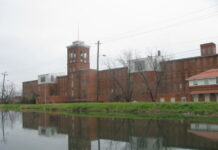Photo credit: DiasporaEngager (www.DiasporaEngager.com).
Minh-Vu H. Nguyen, MD1; Nabeeh A. Hasan, PhD2; Vinicius Calado Nogueira De Moura, MSc, MBA1; L. Elaine Epperson, PhD2; Christopher A. Czaja, MD, DrPH3; Helen Johnston, MPH3; Nicholas Laramee, MPH3; Kelsey Orten, MPH3; JulieAnna Rivas, MPH4; Siru Prasai, MD5; Marissa K. Grossman, PhD6,7; Kiran M. Perkins, MD6; David E. Griffith, MD1; Reeti Khare, PhD1,8; Michael Strong, PhD2,9; Charles L. Daley, MD1,10 (View author affiliations)
View suggested citation
Summary
What is already known about this topic?
Mycobacterium abscessus is a difficult-to-treat nontuberculous mycobacterium; various extrapulmonary infections have been reported associated with medical tourism.
What is added by this report?
In 2022, three patients developed extrapulmonary M. abscessus infections after receiving embryonic stem cell injections in three cities in Mexico. Isolates from two patients were identified as M. abscessus subspecies massiliense of a single clone, distinct from known dominant circulating clones (DCCs), by whole genome sequencing.
What are the implications for public health practice?
Because these isolates were clonal, distinct from known DCCs, and derived from distant cities, a common infected source associated with embryonic stem cell injections is suspected. Vigilance for similar cases and guidance for persons considering medical tourism are advised.
Mycobacterium abscessus is an intrinsically drug-resistant, rapidly growing, nontuberculous mycobacterium; extrapulmonary infections have been reported in association with medical tourism (1). During November–December 2022, two Colorado hospitals (hospitals A and B) treated patient A, a Colorado woman aged 30–39 years, for M. abscessus meningitis. In October 2022, she had received intrathecal donor embryonic stem cell injections in Baja California, Mexico to treat multiple sclerosis and subsequently experienced headaches and fevers, consistent with meningitis. Her cerebrospinal fluid revealed neutrophilic pleocytosis and grew M. abscessus in culture at hospital A. Hospital A’s physicians consulted hospital B’s infectious diseases (ID) physicians to co-manage this patient (2).
In spring 2023, hospital B’s ID physicians identified two additional patients with M. abscessus infections acquired after receiving stem cell injections performed at different clinics in Mexico. The first of these, patient B, an Arizona man aged 60–69 years, developed a right elbow osteoarticular infection after receiving donor embryonic stem cell injections for psoriatic arthritis at a Baja California, Mexico clinic different from the one that treated patient A, in April 2022. The second, patient C, a Colorado man aged 60–69 years, developed bilateral knee infections after receiving donor embryonic stem cell injections in both knees for osteoarthritis at a clinic in Guadalajara, Mexico, in October 2022.
Investigation and Outcomes
Hospital B’s ID physicians requested the isolates but were only able to obtain the original isolates from patients A and B. Whole genome sequencing (WGS) and phylogenetic analysis, performed at hospital B (3), revealed that the isolates were clonal M. abscessus subspecies massiliense, with only one single nucleotide polymorphism (SNP) difference between the two isolate core genomes* and were distinct from the most prevalent characterized dominant circulating clones (3) (Figure). These isolates were regrown from their original subcultures to repeat WGS, and the one SNP difference was confirmed. These patients had their stem cell injections performed at clinics 167 miles (269 km) apart in Baja California, Mexico. As of March 28, 2024, treatment is ongoing for all three patients.
The patients’ treating physicians informed their state public health departments of their findings. The Colorado Department of Public Health and Environment (CDPHE) interviewed patients A and C, and the Arizona Department of Public Health interviewed patient B. CDPHE searched for similar cases within Colorado and other states and consulted with CDC; as of March 28, 2024, no additional cases have been identified. This activity was reviewed by CDC, deemed not research, and was conducted consistent with applicable federal law and CDC policy.†
Preliminary Conclusions and Actions
Given that the isolates identified from patients treated at different, distant clinics represent a single clone, the physicians and CDPHE suspect a common infected source (potentially the product, reagents, or equipment used) for patients A and B. CDPHE’s attempts to identify the product or gather details about its administration have been unsuccessful to date. CDPHE attempted to contact clinics that performed the stem cell injections, but received no response. A collaborative process with Mexican health authorities was initiated and is ongoing; however, no new substantial cases have yet been identified.
Next steps include 1) performing WGS on the organism isolated from patient C from newly acquired specimens; 2) sharing genomic information from the WGS analysis with the National Center for Biotechnology Information to ensure that comparisons can be made with additional cases; and 3) conducting prospective case finding. Historically, stem cell treatments have been linked to bacterial infections (4), and procedure-related infection risks associated with medical tourism are known (1,5). Providers and public health agencies need to be aware of the risk for M. abscessus infections from stem cell treatments for indications not approved by the Food and Drug Administration and maintain vigilance for similar cases (5). They also are advised to provide guidance for persons considering medical tourism (5).
Acknowledgments
Salika M. Shakir, ARUP Laboratories; Katrina M. Byrd, CDC.
1Division of Mycobacterial and Respiratory Infections, Department of Medicine, National Jewish Health, Denver, Colorado; 2Center for Genes, Environment and Health, National Jewish Health, Denver, Colorado; 3Colorado Department of Public Health and Environment; 4Arizona Department of Health Services; 5Maricopa County Department of Public Health, Phoenix, Arizona; 6Division of Healthcare Quality Promotion, National Center for Emerging and Zoonotic Infectious Diseases, CDC; 7Epidemic Intelligence Service, CDC; 8Advanced Diagnostics Laboratories, National Jewish Health, Denver, Colorado; 9Division of Infectious Diseases, Department of Medicine, University of Colorado, Aurora, Colorado; 10Division of Pulmonary Sciences and Critical Care, Department of Medicine, University of Colorado, Aurora, Colorado.
References
- Schnabel D, Esposito DH, Gaines J, et al.; RGM Outbreak Investigation Team. Multistate US outbreak of rapidly growing mycobacterial infections associated with medical tourism to the Dominican Republic, 2013–2014. Emerg Infect Dis 2016;22:1340–7. https://doi.org/10.3201/eid2208.151938 PMID:27434822
- Wolf AB, Money KM, Chandnani A, et al. Mycobacterium abscessus meningitis associated with stem cell treatment during medical tourism. Emerg Infect Dis 2023;29:1655–8. https://doi.org/10.3201/eid2908.230317 PMID:37486227
- Davidson RM, Hasan NA, Epperson LE, et al. Population genomics of Mycobacterium abscessus from U.S. cystic fibrosis care centers. Ann Am Thorac Soc 2021;18:1960–9. https://doi.org/10.1513/AnnalsATS.202009-1214OC PMID:33856965
- Hartnett KP, Powell KM, Rankin D, et al. Investigation of bacterial infections among patients treated with umbilical cord blood-derived products marketed as stem cell therapies. JAMA Netw Open 2021;4:e2128615. https://doi.org/10.1001/jamanetworkopen.2021.28615 PMID:34618037
- CDC. Travelers’ health. Medical tourism: travel to another country for medical care. Atlanta, GA: US Department of Health and Human Services, CDC; 2023. https://wwwnc.cdc.gov/travel/page/medical-tourism
FIGURE. Mycobacterium abscessus whole genome phylogeny*,† of dominant circulating clones 1–7 and isolates from patients A§ and B¶ (A) and genomic similarity between the first and second whole genome sequencing single nucleotide polymorphisms for isolates from patients A§ and B¶ (B) associated with receipt of stem cell treatment in Mexico — Arizona and Colorado, 2022
Abbreviations: ATCC = American type culture collection; BD = Becton Dickinson; DCC = dominant circulating clone; SNP = single nucleotide polymorphism; WGS = whole genome sequencing.
* WGS was conducted twice to confirm the SNP difference between isolates from patients A and B.
† Superscripted T (T) is the standard designation for a type strain of a taxon.
§ Patient A.1 = isolate from patient A, first WGS result; patient A.2 = isolate from patient A, second WGS result.
¶ Patient B.1 = isolate from patient B, first WGS result; patient B.2 = isolate from patient B, second WGS result.
Suggested citation for this article: Nguyen MH, Hasan NA, De Moura VC, et al. Notes from the Field: Potential Outbreak of Extrapulmonary Mycobacterium abscessus subspecies massiliense Infections from Stem Cell Treatment Clinics in Mexico — Arizona and Colorado, 2022. MMWR Morb Mortal Wkly Rep 2024;73:420–422. DOI: http://dx.doi.org/10.15585/mmwr.mm7318a3.
MMWR and Morbidity and Mortality Weekly Report are service marks of the U.S. Department of Health and Human Services.
Use of trade names and commercial sources is for identification only and does not imply endorsement by the U.S. Department of
Health and Human Services.
References to non-CDC sites on the Internet are
provided as a service to MMWR readers and do not constitute or imply
endorsement of these organizations or their programs by CDC or the U.S.
Department of Health and Human Services. CDC is not responsible for the content
of pages found at these sites. URL addresses listed in MMWR were current as of
the date of publication.
All HTML versions of MMWR articles are generated from final proofs through an automated process.
This conversion might result in character translation or format errors in the HTML version.
Users are referred to the electronic PDF version (https://www.cdc.gov/mmwr)
and/or the original MMWR paper copy for printable versions of official text, figures, and tables.
Questions or messages regarding errors in formatting should be addressed to
mmwrq@cdc.gov.
Source of original article: Centers for Disease Control and Prevention (CDC) / MMWR (Journal) (tools.cdc.gov).
The content of this article does not necessarily reflect the views or opinion of Global Diaspora News (www.GlobalDiasporaNews.com).
To submit your press release: (https://www.GlobalDiasporaNews.com/pr).
To advertise on Global Diaspora News: (www.GlobalDiasporaNews.com/ads).
Sign up to Global Diaspora News newsletter (https://www.GlobalDiasporaNews.com/newsletter/) to start receiving updates and opportunities directly in your email inbox for free.

































